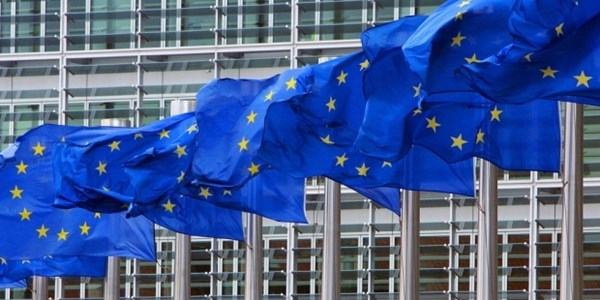European Parliament: Russia is no longer a strategic partner
At a plenary session on Tuesday 12 March, European Parliament passed a resolution that reassesses Russia’s relationship with the EU.
The resolution was adopted with 402 votes to 163 and 89 abstentions, and was based on a report by Latvian MEP Sandra Kalniete.
The document states that Russia can no longer be considered a strategic partner of the EU. The primary reason for this is Moscow’s violation of international law and democratic principles, specifically the occupation and annexation of Crimea, direct and indirect involvement in the armed conflict in eastern Ukraine, and Russia’s continued violation of the territorial integrity of Georgia and Moldova.
“The EU cannot consider a gradual return to the normal state of affairs until Russia fully implements the Minsk Agreements and restores the territorial integrity of Ukraine,” the resolution states.
The ministers of European Parliament also condemned Russia’s activity within the EU, for example the poisoning of Sergey Skripal and his daughter in Salisbury, England, its misinformation campaigns and cyberattacks, and the Russian government’s ties to the extreme right and to populist forces in the EU.
At the same time, European Parliament also sees positive examples of collaboration that unites the EU, Russia, Norway and Iceland, and the Barents Euro-Arctic Council. European Parliament would like to strengthen such collaboration.
“The EU remains open to the strengthening of relations and to dialog,” the resolution states.
With respect to the Nord Stream 2 gas pipeline project, the resolution emphasizes that it will increase the EU’s dependence on gas from Russia, threaten the EU’s internal market, and that it does not comply with the EU’s energy policy and strategic interests. “That is why it must be stopped,” the lawmakers stress.
The resolution also expresses regret concerning the human rights abuses in Russia, the extreme restrictions on freedom of speech and freedom of assembly, and the persecution and oppression of human rights advocates and activists. In this regard, the European parliamentarians call for the release of human rights advocates and all the Russian citizens who have been arrested for peaceably expressing their opinions or participating in protests. The document specifically mentioned Oyub Titiev, head of the Chechen “Memorial”, in this context.
European Parliament is “concerned by reports of unsubstantiated arrests and the torturing of men who are believed to be gays in Chechnya” and condemns the Chechen government’s claims that there are no homosexuals in the region.
The resolution emphasizes the need to support Russia’s civil society, for example, by issuing long-term visas to human rights advocates and their families and by increasing the funding for training journalists.
In December last year, European Parliament adopted a resolution based on the report “Implementation of the EU association agreement with Ukraine”, which also proposed to put an end to the Nord Stream 2 project.
